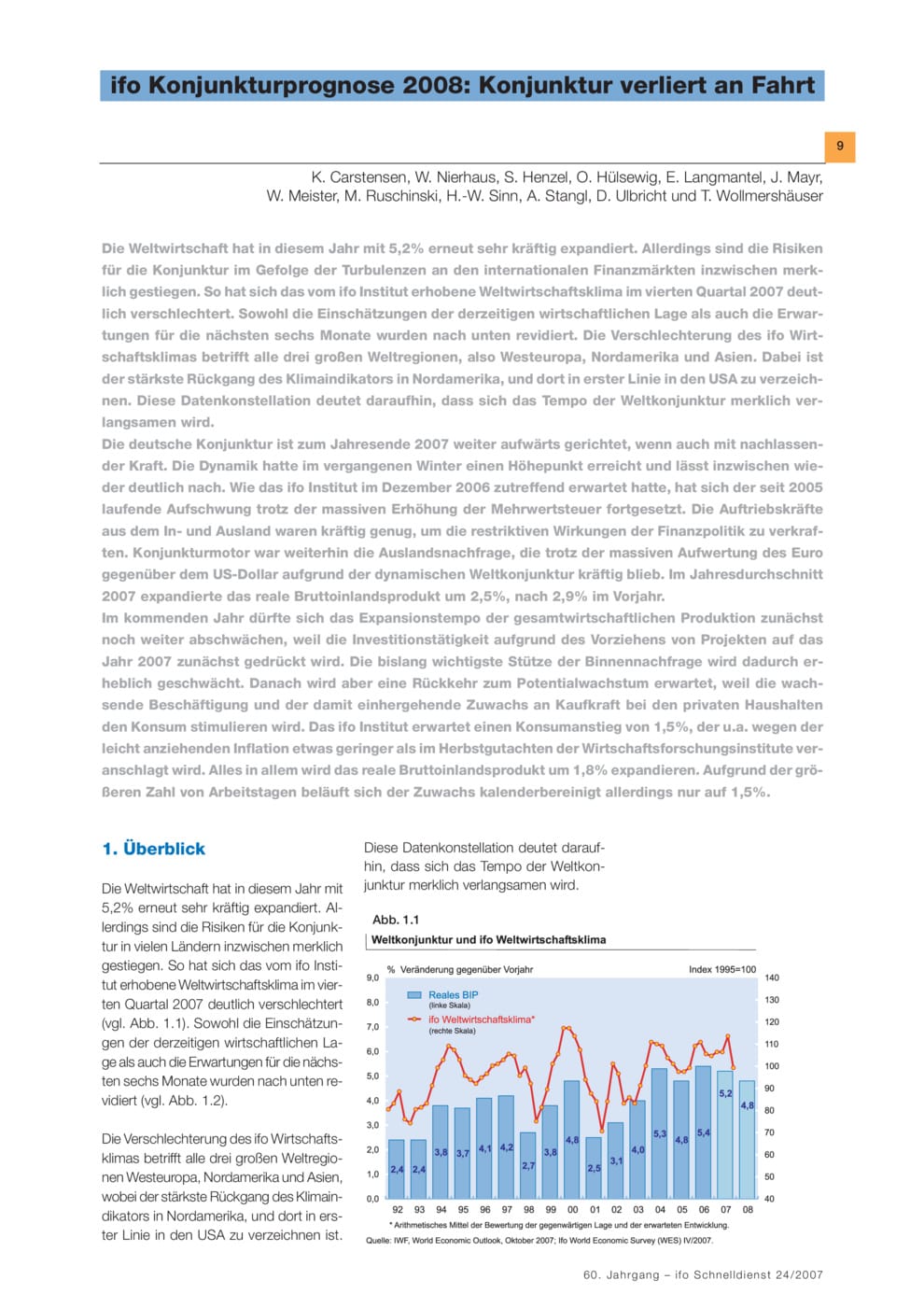Ifo Economic Forecast for 2008: Economy to lose momentum
ifo Institut für Wirtschaftsforschung, München, 2007
ifo Schnelldienst, 2007, 60, Nr. 24, 09-58

On 13 December 2007, the Ifo Institute presented its economic forecast for 2008 and 2009 at its annual pre-Christmas press conference. This year the world economy again expanded at a very strong pace: 5.2%. However, owing to the turbulence in the international financial markets, the economic risks have now clearly grown. The Ifo World Economic Climate worsened significantly in the fourth quarter of 2007; assessments of both the current economic situation and the six-month outlook were revised downwards. The worsening of the Ifo World Economic Climate affected all three major world regions: Western Europe, North America and Asia. The sharpest decline in the climate indicator was in North America, primarily in the United States. These survey results indicate that the momentum of world economic growth will slow noticeably. At year-end 2007 the German economy is still in an upturn phase, albeit with declining momentum. Growth peaked last winter and since then has been clearly slowing. As the Ifo Institute correctly expected in December 2006, the economic upturn that commenced in 2005 continued despite the massive increase in the rate of the value added tax. The internal and external domestic forces were powerful enough to counteract the restrictive effects of fiscal policy. The main driving force continued to be foreign demand, which despite the massive appreciation of the euro vis-à-vis the US dollar remained strong owing to the expanding world economy. On average for 2007, real GDP will expand by 2.5%, after 2.9% in the previous year. This year, however, there were somewhat fewer working days than in 2006. After allowing for calendar adjustments, the growth rate in output amounts to 2.6%, which is slightly below the average of the old EU countries (EU-15).